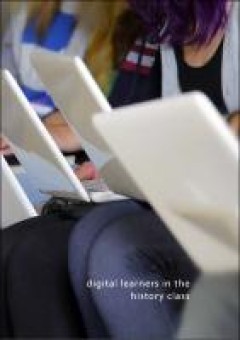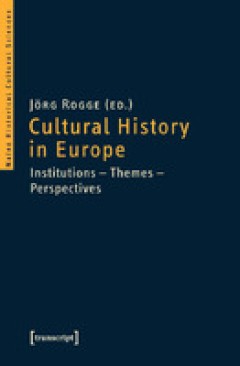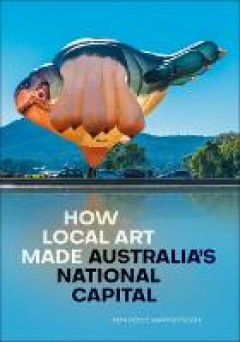Filter by
# Debug Box
/var/www/htdocs/pustaka-digital/lib/SearchEngine/SearchBiblioEngine.php:688 "Search Engine Debug 🔎 🪲"
Engine Type ⚙️: "SLiMS\SearchEngine\SearchBiblioEngine"
SQL ⚙️: array:2 [ "count" => "select count(sb.biblio_id) from search_biblio as sb where sb.opac_hide=0 and (sb.call_number LIKE :callnumber)" "query" => "select sb.biblio_id, sb.title, sb.author, sb.topic, sb.image, sb.isbn_issn, sb.publisher, sb.publish_place, sb.publish_year, sb.labels, sb.input_date, sb.edition, sb.collation, sb.series_title, sb.call_number from search_biblio as sb where sb.opac_hide=0 and (sb.call_number LIKE :callnumber) order by sb.last_update desc limit 10 offset 100" ]
Bind Value ⚒️: array:1 [ ":callnumber" => "9%" ]

Surfing the past
This book discusses one of the most frequently discussed subjects in history education during the last two decades, namely how secondary school pupils use the World Wide Web for their learning activities. Based on two case studies in two Dutch schools, the book shows some ways in which the use of the Web has changed history education in at least three respects: first, the findings of the two ca…
- Edition
- -
- ISBN/ISSN
- 9789088900815
- Collation
- 279 p. : color, ill.
- Series Title
- -
- Call Number
- 907.12 NYI s

Xiipúktan (first of all): three views of the origins of the Quechan people
The Quechan people live along the lower part of the Colorado River in the United States. According to tradition, the Quechan and other Yuman people were created at the beginning of time, and their Creation myth explains how they came into existence, the origin of their environment, and the significance of their oldest traditions. The Creation myth forms the backdrop against which much of the tr…
- Edition
- -
- ISBN/ISSN
- 9781909254411
- Collation
- 210 p. ; 24 cm
- Series Title
- -
- Call Number
- 973.0497 BRY x

Beyond holy Russia: the life and times of Stephen Graham
This biography examines the long life of the traveller and author Stephen Graham. Graham walked across large parts of the Tsarist Empire in the years before 1917, describing his adventures in a series of books and articles that helped to shape attitudes towards Russia in Britain and the United States. In later years he travelled widely across Europe and North America, meeting some of the best k…
- Edition
- -
- ISBN/ISSN
- 9781783740147
- Collation
- x, 355 p. : ill. : ind. ; 24 cm
- Series Title
- -
- Call Number
- 914.703

The search for the first americans : science, power, politics
"Who were the First Americans? Where did they come from? When did they get here? Are they the ancestors of modern Native Americans? These questions might seem straightforward, but scientists in competing fields have failed to convince one another with their theories and evidence, much less Native American peoples. The practice of science in its search for the First Americans is a flawed endeavo…
- Edition
- -
- ISBN/ISSN
- 9780806175935
- Collation
- ix, 163 p.
- Series Title
- -
- Call Number
- 970.00497 DAV t

History of concepts : comparative perspectives
Although vastly influential in German-speaking Europe, conceptual history (Begriffsgeschichte) has until now received little attention in English. This genre of intellectual history differs from both the French history of mentalités and the Anglophone history of discourses by positing the concept - the key occupier of significant syntactical space - as the object of historical investigation. C…
- Edition
- -
- ISBN/ISSN
- 9053563067
- Collation
- ix, 293 p. : ill
- Series Title
- -
- Call Number
- 907.2 VAN h

A bridgehead to africa : german interest in the ottoman province of tripoli (…
This monograph analyses the role of the province of Tripoli, Libya, in the context of German foreign politics with a focus on the period between 1884 and 1918. Suaad Alghafal examines the German military, political and economic strategy, and sheds lights on the international events that provided the setting for the German policy towards Libya, particularly the European ‘Scramble for Africa’
- Edition
- -
- ISBN/ISSN
- 9783110685015
- Collation
- 255 p.
- Series Title
- -
- Call Number
- 940 SUA a

Cultural history in Europe : institutions - themes - perspectives
What is the current state of discussion in Cultural History? Which European institutions engage exclusively in Cultural History and which topics do they address? And how will Cultural History develop in the future? These and other questions are raised by European scholars in the discussion of Institutions, Themes and Perspectives of Cultural History in this volume. It provides a profound overvi…
- Edition
- -
- ISBN/ISSN
- 9783839417249
- Collation
- 259p.
- Series Title
- -
- Call Number
- 940.5 CUL r

How local art made Australia’s national capital
Canberra’s dual status as national capital and local city dramatically affected the rise of a unique contemporary arts scene. This complex story, informed by rich archival material and interviews, details the triumph of local arts practice and community over the insistent cultural nation-building of Australia’s capital. It exposes local arts as a vital force in Canberra’s development and …
- Edition
- -
- ISBN/ISSN
- 9781760463410
- Collation
- 311 p.: colour, ill.
- Series Title
- -
- Call Number
- 994.71 DOY h

Mendl Mann’s 'The Fall of Berlin'
Mendl Mann’s autobiographical novel The Fall of Berlin tells the painful yet compelling story of life as a Jewish soldier in the Red Army. Menakhem Isaacovich is a Polish Jew who, after fleeing the Nazis, finds refuge in the USSR. Translated into English from the original Yiddish by Maurice Wolfthal, the narrative follows Menakhem as he fights on the front line in Stalin’s Red Army against …
- Edition
- -
- ISBN/ISSN
- 9781800640795
- Collation
- 236p. ; ill.
- Series Title
- -
- Call Number
- 940.531503924 MAU m

The International Turn in American Studies
The volume is a contribution to the ongoing debate on the internationalization of American Studies. The essays by European, American and Latin American scholars provide critical evaluations of a wide range of concepts, including trans-national and post-national, international, trans-atlantic, trans-pacific, as well as hemispheric, inter-American and comparative American studies. Combining theor…
- Edition
- -
- ISBN/ISSN
- 9783653036572
- Collation
- 372 p. : ill
- Series Title
- -
- Call Number
- 973.071 MES t
 Computer Science, Information & General Works
Computer Science, Information & General Works  Philosophy & Psychology
Philosophy & Psychology  Religion
Religion  Social Sciences
Social Sciences  Language
Language  Pure Science
Pure Science  Applied Sciences
Applied Sciences  Art & Recreation
Art & Recreation  Literature
Literature  History & Geography
History & Geography